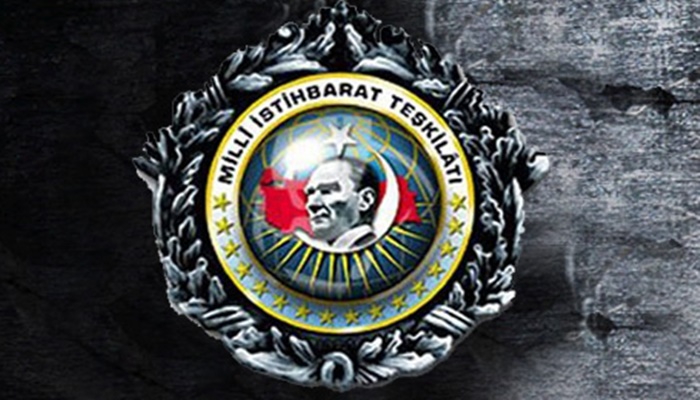Turkey’s National Intelligence Organization (MİT) has been tasked with locating, arresting and even killing military officers who fled Turkey after allegedly taking part in a failed coup attempt last month, according a story in the Vatan daily on Tuesday.
The paper based its report on a story that recently appeared in the Greek Proto Thema newspaper.
Turkey survived a military coup attempt on July 15 that killed over 240 people and wounded a thousand others. Immediately after the putsch, the government along with President Recep Tayyip Erdoğan pinned the blame on the faith-based Gülen movement without credible evidence and claimed that military members linked to the movement carried out the coup attempt.
Eight alleged coup plotter soldiers fled to Greece after the failed coup in Turkey.
Turkey’s government has demanded the rapid extradition of the men it has described as “traitors” to face charges of trying to overthrow the democratic order.
The eight officers, who hold ranks up to that of major, say they fear for their lives if they are returned to Turkey, and they are reported to be seeking asylum in several European countries.
According to the Vatan report, MİT has sent its agents to Europe and many countries around the world under cover to locate the alleged coup plotting soldiers who are at large and to kill them if necessary.
These agents will reportedly act independently; they will have no communication among themselves or with MİT Undersecretary Hakan Fidan to keep their operations secret. MİT reportedly granted its agents the right to kill if they succeed in locating the alleged coup plotters on the grounds that their extradition to Turkey seems a distant possibility.
The daily likened MİT’s allegedly planned operations against the suspected coup plotters to the “Wrath of God,” a covert operation directed by Israeli intelligence organization Mossad to assassinate individuals suspected of involvement in the 1972 Munich massacre in which 11 members of the Israeli Olympic team were killed.
Authorized by Israeli Prime Minister Golda Meir in the autumn of 1972, the operation is believed to have continued for over 20 years, and the targets were members of the Palestinian armed militant group Black September and Palestine Liberation Organization (PLO) operatives.
According to a story in the German Die Welt newspaper earlier this month, Ankara has 6,000 MİT informants plus MİT officers in Germany who are putting pressure on German Turks.
MİT is directly answerable to Turkish President Erdoğan and Prime Minister Binali Yıldırım, who both blame the coup attempt on Fethullah Gülen, a Turkish Islamic scholar living in Pennsylvania who inspired the Gülen movement.
The Turkish government and President Erdoğan have designated the Gülen movement, which runs charities, schools and businesses around the world, as a terrorist organization and have launched a widespread crackdown on suspected members since the failed coup.
Critical journalists may be victims of covert operations, too
In addition to the alleged coup plotters, critical journalists or those who are thought to be linked to the Gülen movement also face the risk of being victims of extrajudicial killings.
Earlier this month, two pro-government journalists, Ersoy Dede and Hikmet Genç, talked about how to get rid of critical journalists living in exile by bringing to mind the ASALA case during a program on Kanal 24.
Dede said: “In this country, I witnessed how ASALA was finished. One morning we will wake up and see some scum being caught at Sabiha Gökçen Airport. The media will cover the story like this: “Tuncay Opçin, Emre Uslu and Ekrem Dumanlı …”
The figures Dede mentioned are critical journalists who had to flee Turkey due to the government crackdown on dissent.
“That’s why I am mentioning ASALA. In the ASALA case, everything was done via the internal dynamics of the government. And it is expected. These journalists will not sleep in peace,” he said.
In the 1970s Turkish diplomats were attacked by the Armenian Secret Army for the Liberation of Armenia (ASALA) and the Justice Commandos Against Armenian Genocide (JCAG). Between 1975 and 1985, a total of 84 incidents were recorded: 46 people were killed and 299 injured. Later there were claims that some of these ASALA members were assassinated abroad by deep state elements of Turkish intelligence.
This is not the first time MİT’s name has been associated with extrajudicial killings as the organization was allegedly involved in the assassination of three Kurdistan Workers’ Party (PKK) women in Paris in 2013.
In 2015, French investigators found that Turkey’s secret services were probably involved in the murder of the three women, Sakine Cansız, Fidan Doğan and Leyla Söylemez, at a Kurdish cultural center in January 2013.
Leaks in the Turkish press have backed up the hypothesis of MİT involvement.



